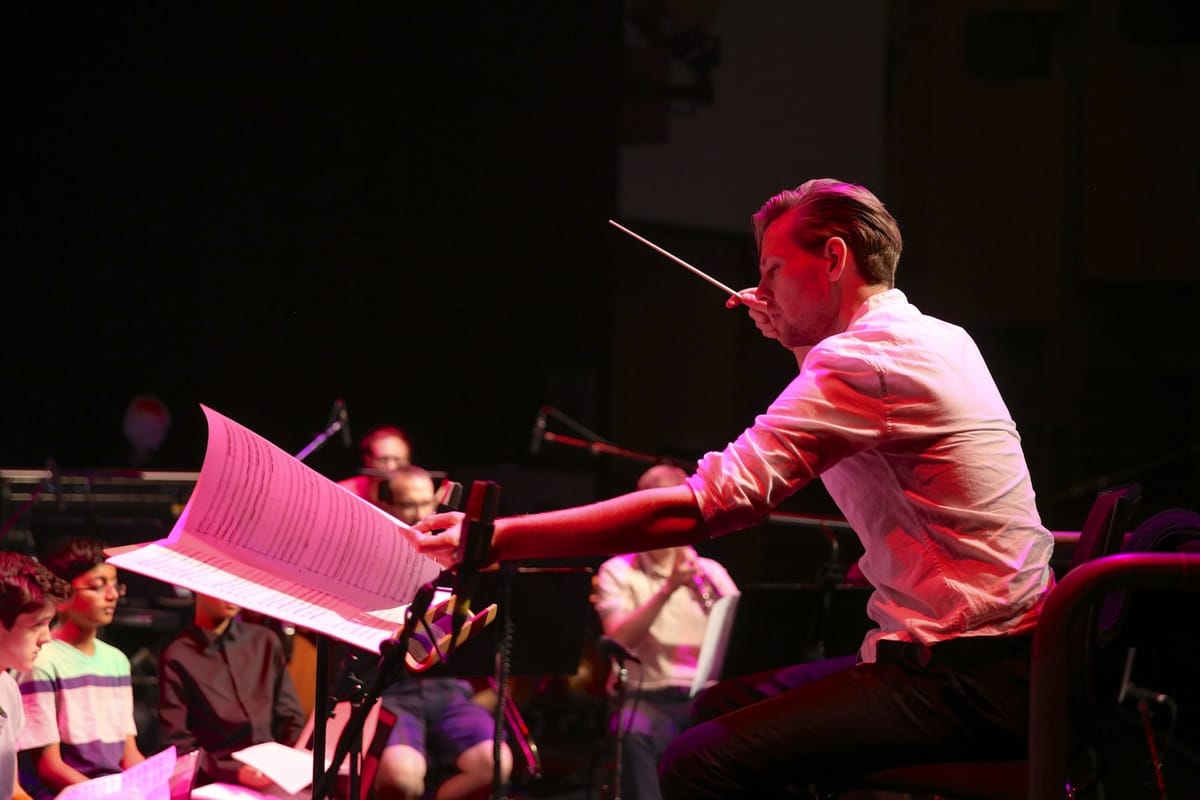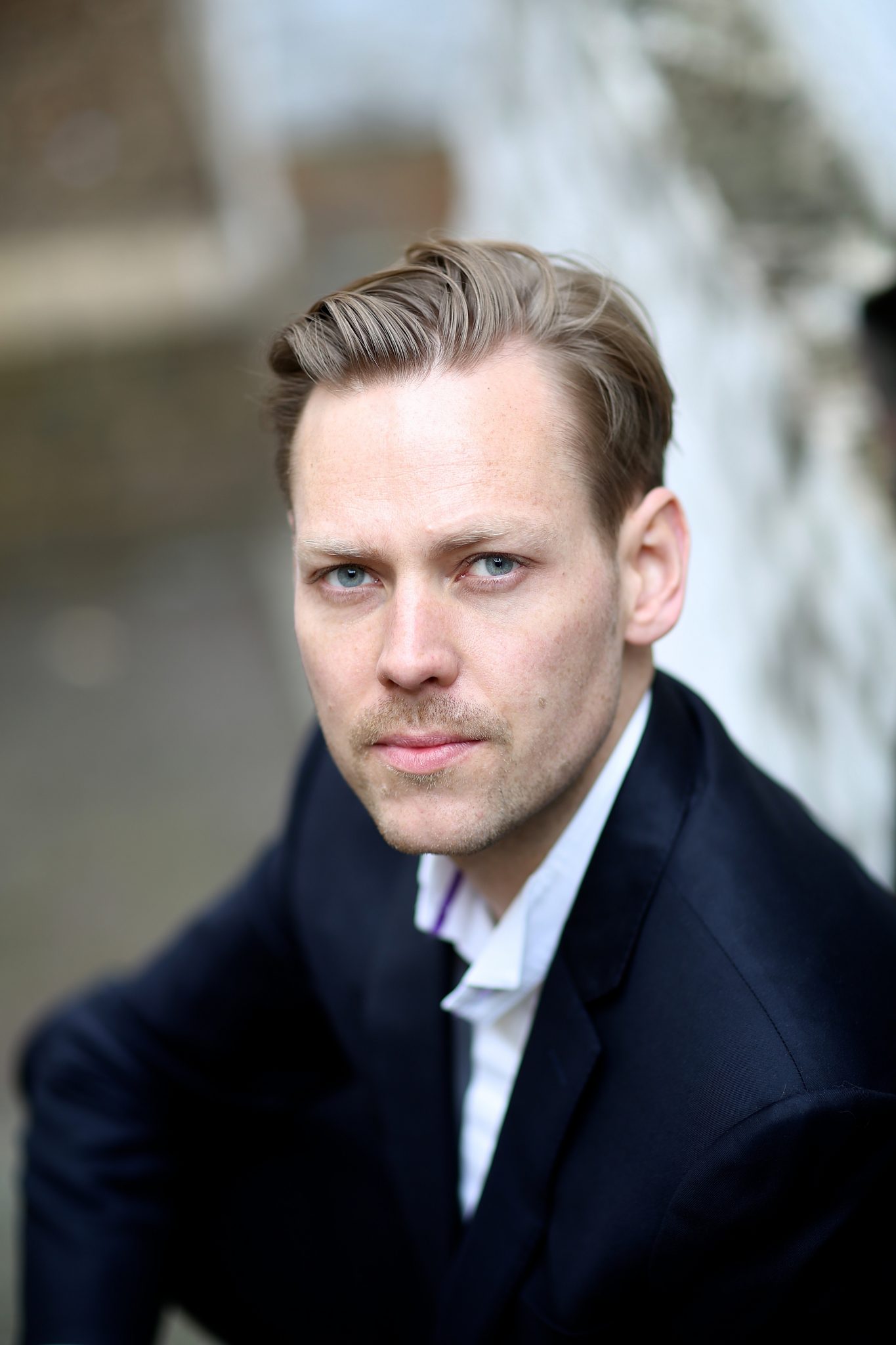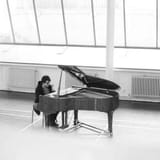Robert Ames

Where did you grow up in England?
I grew up in Northamptonshire where I completed my state school education. My initial music education came from choral church singing and the County Youth music system.
What was is like to continue your graduate music studies at the Royal Academy of Music in London?
My association with the Academy started before that. I attended their junior department and would travel down to London on a weekend to study with teachers and make chamber music. That’s when I first had conducting lessons as well. The transition from weekly lessons towards my full time undergraduate and master’s degree was easy, as I had already fallen in love with the place by then.
How did the idea come about for co-founding the London Contemporary Orchestra and how has the journey been since?
I set up the London Contemporary Orchestra with co-Artistic Director Hugh Brunt. We have had a great amount of love for symphonic music together ever since we were 16 – 18 years of age. The set up never happened immediately as I went to study at the Royal Academy of Music, while Hugh went off to Oxford. We stayed in touch over this period. Over our graduate studies, we both had fallen in love with contemporary classical music and in 2008 we did our first season.
In London, the LCO is growing strength to strength. We do upto 40-50 projects a year that range from chamber music concerts to big symphonic concerts with 70 – 80 musicians. We go into spaces that are off the beaten track and come up with program ideas for these special places. Imagine a project in a hydraulic power station or an abandoned underground station. We record a lot as well – we did the score for the film ‘Macbeth’ and worked with Jonny Greenwood, the guitarist for Radiohead. We also work with pop and rock artists.
Over time we have cultivated a very unique audience in London than range from 20 – 35 year olds. We always sell out and the audience is young and vibrant which is quite exciting.
You visited India to perform with the Symphony Orchestra of India this March – how did those concerts go?
It was fantastic! We played some of Vivaldi’s and Piazzolla’s The Four Seasons followed by some arrangements of famous Hindi songs and short pieces by Gustav Holst and Benjamin Britten. It went very well indeed – the audience reception was good. We played a little with the lighting in order to have a different setting for every one of the four seasons that made it more interactive. We used some projection and talked as well – Violinist Galya Bisengalieva spoke of the music and I recited poetry that Vivaldi based his Four Seasons on.
After the two concerts in Mumbai, I visited Chennai to discover their vibrant classical music scene. The British Council took me down there to introduce me to the musicians at the KM Music Conservatory.
What do you think is the future for Western classical music in India?
I find it quite exciting as there seems to be a real interest from young musicians. I was speaking with a young 11 year old pianist and asked her why she wanted to play. She replied by saying that it “inspires me, moves me and takes me to another place” – I thought it was really wonderful for somebody so young to say that. It seems that this is echoed across a lot of young students who are genuinely passionate about music education.
What advice would you give to young musicians in India?
It seems to me that Western classical music in India is growing whereas in Europe it is shrinking bit by bit. People are talking about building new audiences and raising awareness by looking forward.
The one thing that excites me about London is that many pockets of music making is happening on smaller scales and venues. People are cultivating their audiences in these small venues. I feel that could be a good way to go for Indian musicians here – to have a bit of an entrepreneurial streak about them in order to put together ensembles and get their music out there.
About Robert Ames

A new generation of musicians have emerged: brilliantly equipped, fully in control of their craft, but impatient of the conventions and rituals hemming in classical music, often closing it off to younger listeners. At the forefront of this new wave is Robert Ames, co-conductor of the London Contemporary Orchestra. He can be found conducting them in an eclectic range of venues from Oval Space in East London through to the hallowed surroundings of London’s great concert halls.
Although classical music is central to Ames, he also works with a wide range of artists from Fashion designer Vivien Westwood to Ron Arad, Frank Ocean, Dj Shadow or Jonny Greenwood of Radiohead. His work is as likely to take in sessions at Abbey Road, the National Theatre or working in the film studio on projects such as John Maclean’s Sundance Flim Festival award winning Slow West or premiering new works by Terry Riley. Ames is also much in demand as a viola player premiering many solo and chamber works by leading composers of his generation.
When Ames set up the London Contemporary Orchestra with fellow conductor Hugh Brunt in 2008, his mission was to “think very differently about what people want to listen to”. This raison d’etre led to him winning the h.Club 100 award and LCO winning the prestigious Royal Philharmonic Society Ensemble award in 2015. There are no borders, frontiers or barriers in his own tastes, which are likely to range from Actress to Adès, Foals to Feldman or Couperin to Cage.





